LATEST NEWS
Auckland's urban sprawl gains pace south of the Bombays
- Monday, October 15, 2018
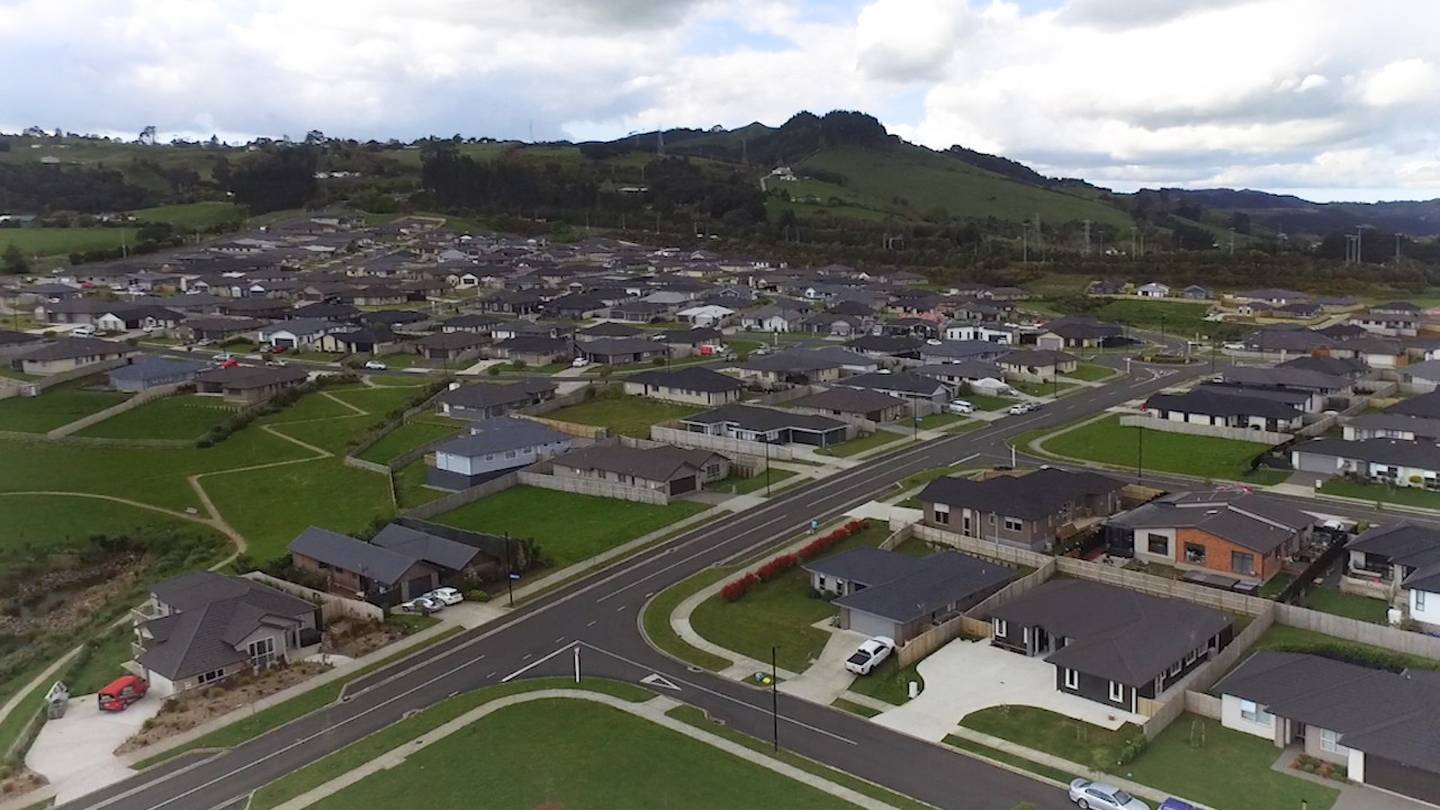
By: Hunter Calder
Videojournalist Waikato, NZH Local Focus Click here to watch the video
It's a pinch-me-and-wake-me-from-the-dream kind of scenario: Family homes on good-sized sections for $600,000 and businesses lined up to roll in and invest.
Within the reach of Auckland.
Anyone driving over the Bombay Hills will have seen Pokeno undergoing a huge makeover.
It's not so obvious down on Pokeno's main street, where motorists still take a break and lick their way through the famous ice creams.
It's more noticeable at the sole motel, where owner Bruce McRae is expanding his business and setting up a restaurant. Up the hill, houses have sprouted like oversized, beige mushrooms after a spring shower.
"What was dairy farm is now all houses," McRae said. "Who would have believed that it could happen like that? I wouldn't have."
On the other side of the railway line, there is more activity - sites being levelled and cleared, houses under construction, and massive industrial buildings taking shape.
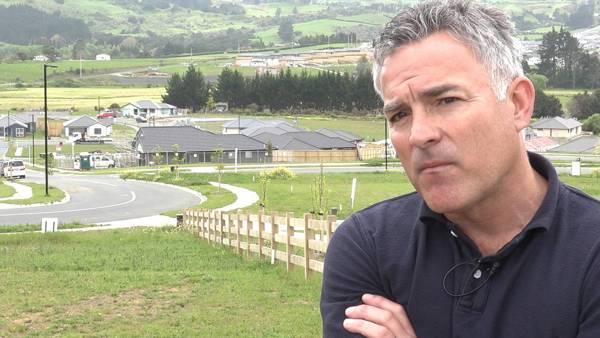
Project manager Colin Botica says take-up was initially slow in the shade of the global financial crisis. Photo / Hunter Calder
It's all happened in just six years but the idea was first floated in 2004, said project manager Colin Botica.
"Three farmers came to us and said they thought it was a good idea for us to develop in Pokeno so we had a look and they were right," Botica said.
"There was a whole lot of work to be done because there was not a lot of infrastructure here, but the basics were here - right on State Highway One and Two and the main trunk line too. Great as far as transportation goes."
With enough land for nearly two thousand sections – a thousand residential lots have been sold already. And Waikato District Council has had 946 resource consents for new dwellings in and around Pokeno in just five years.
With Auckland's increasing house prices, Pokeno was increasingly an option for those looking for affordable housing, but it had other benefits too - most notably the quiet
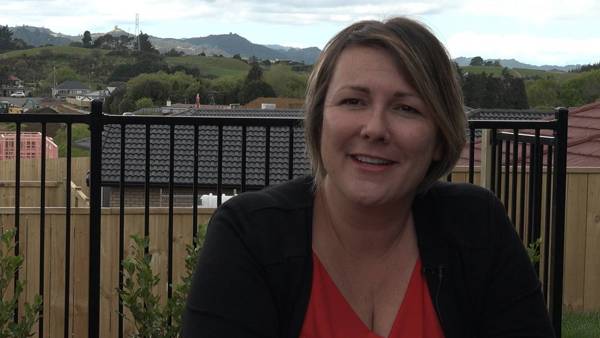
Longtime Auckland resident Jocosa Bruce has made the transition to Pokena. Photo / Hunter Calder
"I remember the first night. It took two weeks for my ears to settle from the noise, the constant ringing that happens in Auckland," said former Aucklander Jocosa Bruce.
Most new residents agreed.
"Even though it's suburbia, it still feels 'countrified' because it's quiet," said Kay Meale, a recent arrival from the country.
But it may not be staying quiet and peaceful for long.
The nearby industrial park was 96 per cent sold, with businesses including dairy giants Synlait Milk which was investing $250 million on a new milk powder factory, Winston Nutrition moving in alongside existing dairy company Yashili which makes infant formula.
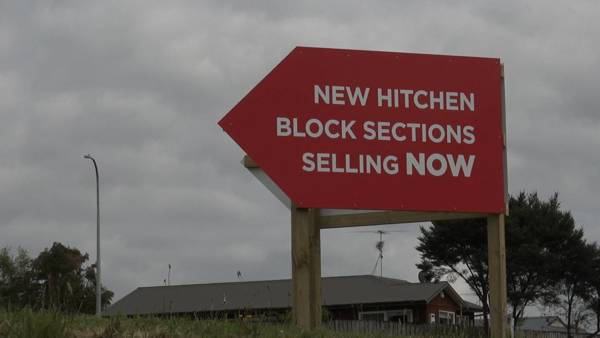
Pokeno is on the main trunkline and within coo-ee of state highways one and two. Photo / Hunter Calder
"We didn't consider the dairy industry coming in in the way they have," said Botica. "So that's fantastic. It creates more jobs than the logistics
industry, and jobs for residents who move here."
Pokeno Whisky Company and Hynds also planned to set up and be operating in the next three years.
Bruce made the shift to Pokeno with her family as a way to "get our own space back".
She now worked for a local company, Compass Homes, building in the residential development. She said the people moving in were from all over - Tauranga, Hamilton and, like herself, Auckland.
"The main reason they look here is affordability. People with kids, or about to have kids, they need an extra bedroom and those homes in Auckland are out of their price range.
"You can get a brand new home for under $600,000 here - double glazed, insulated, you can't beat it."
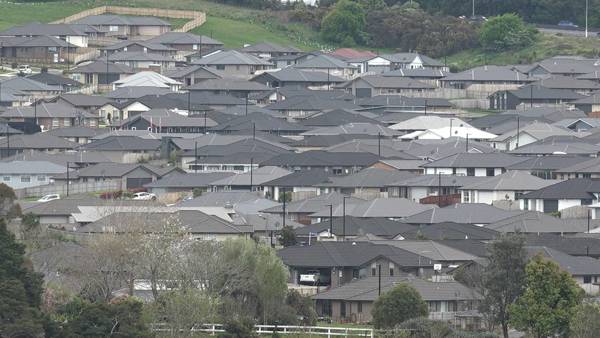
Core Logic says median values in Pokena have levelled off in recent times. Photo / Hunter Calder
Valuations from Nick Goodall at Core Logic put the median property value in Pokeno at $698,600
"From September 2014, the median value in Pokeno grew from $533,100 to $744,600 in March 2017 - a 40 per cent increase," Goodall said.
"Much of this growth can be attributed to population growth in the region and the availability of credit."
Recently that had dropped, which Goodall said could be because of a reduced demand as credit became harder and sales steadied across Auckland.
It reminded Botica of when the project started.
"[It] was a slow start after the huge financial crisis," Botica said. "So we've been surprised at the speed in residential, from those tough times in 2009 and 2010. But we were always confident in the location."
Building up terraced and multi-storied homes, now being developed closer to Auckland wasn't an option for these developers.
Botica said they stuck with the vision to create the "older New Zealand traditional subdivision and keep that connection with the rural [aspect].
"We didn't see the need to intensify like Auckland here."
The population of Pokeno was currently estimated at around 3000 but it could soar to 12,000 by 2045, according to Stats NZ.
But more people, means more pressure on resources.
"Lots of houses, but no amenities like they promised, so [it'd] be good if some shops come along soon," Dean Meale, a new resident said.
There were plans for a supermarket, a bakery and perhaps a gym.
The Waikato District Council has set aside more than $32 million in its long-term plan for projects including a library, roading, upgrades on the wastewater system and power services, general manager of community growth Clive Morgan said.
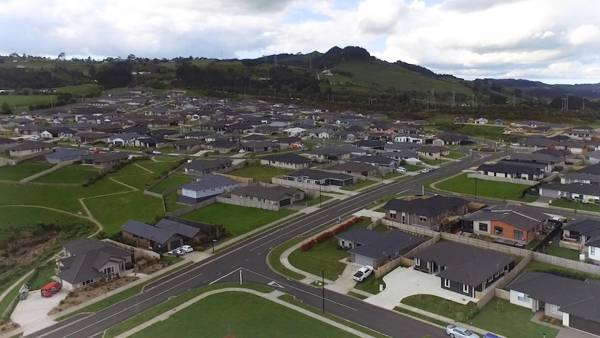
Some of the key infrastructure projects identified in the long-term plan for Pokeno included:
- $3m for a library/service centre in the next three years (2019-22)
- $7m for roading and intersection works in the next three years (2019-22)
- $18.8m for water reservoirs and reticulation extensions for Tuakau/Pokeno (2021-24)
- $3.1m for a North Waikato resource recovery centre for Tuakau/Pokeno (2024-26)
- other works including extensions to the stormwater system this summer, new wastewater rising mains to service the industrial park at Pokeno.
There were also parks, playgrounds and a bridge over the railway line connecting one of the new suburbs to the original Pokeno village.
But there was still at least six years of development ahead and, as with any building development, there was no certainty about the timeline.
Nonetheless, Botica was confident, pointing out how things have "come in threes" throughout this project - from the three farmers who had the idea, the three dairy giants now in town, to three Norfolk Pines on a hill overlooking the new Pokeno.